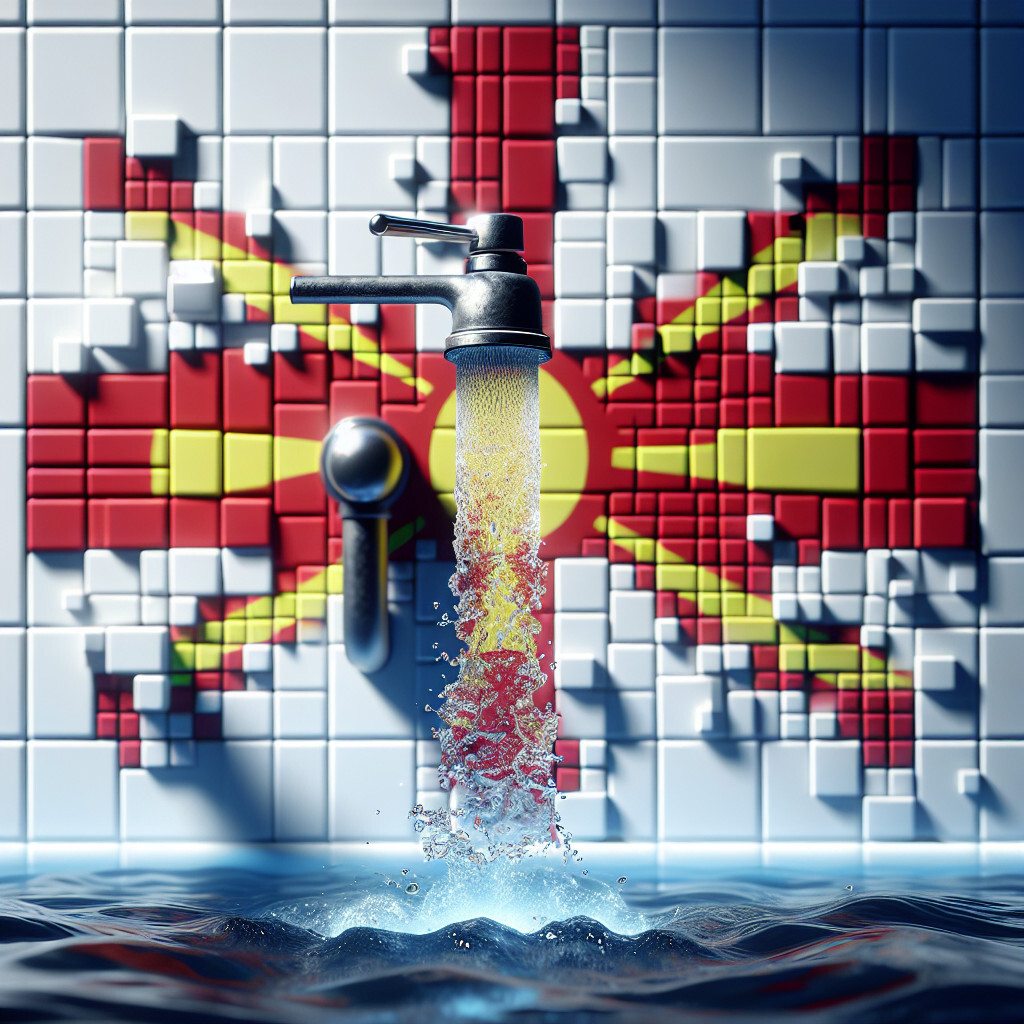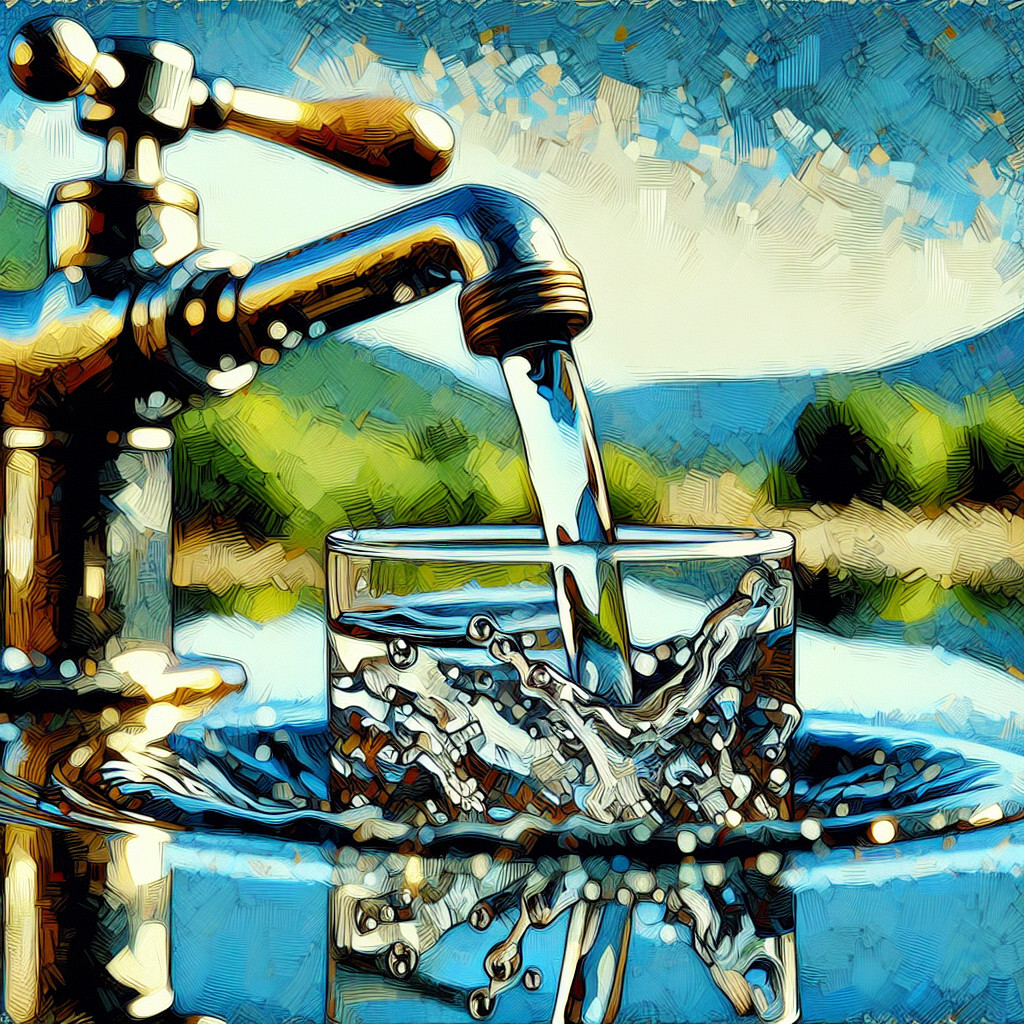-
Table of Contents
“Macedonia’s Tap Water: Refreshingly Pure and Safe to Drink!”
Introduction

The tap water in Macedonia is generally considered safe to drink, although its quality can vary depending on the region. The country’s water supply system is regularly monitored and treated to meet health and safety standards. However, in some rural areas, the infrastructure may be less developed, potentially affecting the water quality. Therefore, while locals often drink tap water, visitors are sometimes advised to drink bottled water as a precaution.
Understanding the Quality of Tap Water in Macedonia
Macedonia, officially known as the Republic of North Macedonia, is a country located in the Balkan Peninsula in Southeast Europe. It is known for its rich history, diverse culture, and picturesque landscapes. However, one aspect that often goes unnoticed is the quality of its tap water. Understanding the quality of tap water in Macedonia is crucial for both residents and tourists, as it directly impacts health and wellbeing.
The quality of tap water in Macedonia varies significantly across the country. In urban areas, the tap water is generally safe to drink. The water supply in these areas is managed by public utility companies, which are responsible for treating and distributing water. These companies adhere to strict standards set by the Macedonian government and the European Union, ensuring that the water is free from harmful contaminants. They regularly monitor the water quality and publish the results for public viewing. Therefore, in cities like Skopje, Bitola, and Ohrid, you can confidently drink tap water without worrying about health risks.
However, the situation is quite different in rural areas of Macedonia. Here, the water supply is often sourced from wells and springs, which are more susceptible to contamination. The water treatment facilities in these areas are not as advanced as those in urban areas, and the water quality monitoring is not as rigorous. As a result, the tap water in rural areas may contain harmful bacteria, viruses, and chemicals. Drinking such water can lead to health issues like diarrhea, stomach cramps, and even more serious diseases. Therefore, it is advisable to avoid drinking tap water in rural areas of Macedonia. Instead, you should opt for bottled water, which is widely available and relatively inexpensive.
Furthermore, even in urban areas, the taste and smell of tap water can vary. This is because the water is treated with chlorine to kill bacteria and other microorganisms. While this makes the water safe to drink, it can also give it a distinct taste and smell that some people may find unpleasant. If you are sensitive to the taste or smell of chlorine, you may prefer to drink bottled water or use a water filter to remove the chlorine.
In conclusion, the quality of tap water in Macedonia depends largely on where you are in the country. In urban areas, the tap water is generally safe to drink, although it may have a taste or smell that some people find unpleasant. In rural areas, the tap water may not be safe to drink due to the risk of contamination. Therefore, when visiting Macedonia, it is important to be aware of these differences and take appropriate precautions. Always remember that safe and clean water is essential for maintaining good health.
The Impact of Environmental Factors on Macedonia’s Tap Water
Macedonia, officially known as the Republic of North Macedonia, is a country located in the Southeastern region of Europe. It is known for its rich history, diverse culture, and picturesque landscapes. However, one aspect that often goes unnoticed is the quality of its tap water. The quality of tap water in Macedonia is significantly influenced by various environmental factors, which have both positive and negative impacts.
The country’s geographical location plays a crucial role in determining the quality of its tap water. Macedonia is landlocked and is surrounded by mountains, which means that it relies heavily on its rivers and underground water sources for its water supply. The Vardar River, the country’s largest river, is a primary source of water for many Macedonians. The river water is treated and purified before it is supplied to households as tap water. The natural filtration process that occurs as the water flows through the riverbeds helps to remove impurities, contributing to the overall quality of the tap water.
However, the same geographical features that contribute to the quality of Macedonia’s tap water can also pose challenges. The country’s mountainous terrain makes it difficult to establish extensive water supply networks, especially in rural areas. As a result, some remote regions may not have access to treated tap water and may rely on untreated spring or well water, which can contain harmful bacteria and other contaminants.
Another significant environmental factor that impacts the quality of tap water in Macedonia is pollution. Industrial activities, agricultural runoff, and improper waste disposal can contaminate water sources, affecting the quality of the tap water. For instance, heavy metals from industrial waste can seep into the groundwater, making it unsafe for consumption. Similarly, pesticides and fertilizers used in agriculture can run off into rivers and streams, contaminating the water with harmful chemicals.
The Macedonian government has implemented various measures to mitigate these issues and ensure the provision of safe and clean tap water. These include stringent water quality standards, regular monitoring of water sources, and the construction of modern water treatment facilities. However, these efforts are often hampered by limited resources and infrastructure challenges.
Climate change is another environmental factor that is increasingly impacting the quality of tap water in Macedonia. Rising temperatures and changing precipitation patterns can affect water availability and quality. For instance, prolonged periods of drought can reduce the flow of rivers and streams, concentrating pollutants and making the water harder to treat. On the other hand, heavy rainfall can cause flooding, which can lead to the contamination of water sources with sewage and other pollutants.
In conclusion, the quality of tap water in Macedonia is influenced by a complex interplay of environmental factors. While the country’s geographical features contribute to the natural filtration of water, they also pose challenges in terms of water supply. Pollution from various sources and the impacts of climate change further complicate the situation. Despite these challenges, efforts are being made to ensure that the tap water in Macedonia is safe and clean. However, it is clear that more needs to be done to safeguard this vital resource in the face of growing environmental pressures.
Health Implications of Drinking Tap Water in Macedonia
In the heart of the Balkan Peninsula, nestled between Greece, Albania, Bulgaria, and Serbia, lies the Republic of North Macedonia. This landlocked country, known for its rich history and diverse culture, has been a subject of interest for many, particularly in terms of its water quality. The health implications of drinking tap water in Macedonia are a topic of concern for both locals and tourists alike.
Macedonia’s water supply primarily comes from surface water sources such as rivers and lakes, and to a lesser extent, groundwater. The country’s water infrastructure, however, has been a subject of concern. Aging pipes, inadequate treatment facilities, and pollution have raised questions about the safety and quality of the tap water.
The World Health Organization (WHO) has set guidelines for drinking water quality, which include parameters for physical, chemical, and microbiological characteristics. According to these guidelines, the tap water in Macedonia has been found to contain higher levels of certain contaminants than recommended. These include nitrates, which can be harmful if consumed in large amounts, particularly for infants and pregnant women. High nitrate levels in water can lead to methemoglobinemia, a condition that reduces the oxygen-carrying capacity of the blood.
Additionally, the presence of heavy metals such as lead and arsenic in the water supply has been reported. Chronic exposure to these elements can lead to serious health problems, including neurological damage and cancer. The presence of these contaminants is often attributed to industrial pollution and the leaching of substances from old pipes.
Microbiological contamination is another issue. The presence of bacteria such as E.coli in the water indicates fecal contamination, which can lead to gastrointestinal illnesses. This is often a result of inadequate sanitation and wastewater treatment.
Despite these concerns, it’s important to note that the water quality can vary significantly across the country. In some areas, particularly in larger cities and towns, the tap water meets the WHO guidelines and is considered safe to drink. In other areas, particularly rural and remote regions, the water quality may be substandard.
The Macedonian government has been making efforts to improve the water infrastructure and quality. This includes upgrading treatment facilities, replacing old pipes, and implementing stricter regulations for industrial pollution. However, these improvements take time and substantial financial investment.
In the meantime, locals and tourists are advised to take precautions. Boiling tap water before drinking or using it for cooking is a common practice. This can kill bacteria and other pathogens, making the water safer to consume. Alternatively, bottled water is widely available and is a safe option, although it does have environmental implications due to plastic waste.
In conclusion, while the tap water in Macedonia may not meet the WHO guidelines in all areas, efforts are being made to improve the situation. It’s important for individuals to be aware of the potential health implications and to take appropriate precautions. As always, when traveling, it’s advisable to research the local water quality and to follow the advice of health and travel authorities.
The Role of Government in Ensuring Safe Tap Water in Macedonia
The role of the government in ensuring safe tap water in Macedonia is a topic of paramount importance. The quality of tap water is a critical issue that directly affects the health and well-being of the population. In Macedonia, the government plays a significant role in ensuring that the tap water is safe for consumption and other uses.
The government of Macedonia, through its various agencies, is responsible for the regulation and oversight of the country’s water supply. This includes setting standards for water quality, monitoring compliance with these standards, and taking action when violations occur. The government’s role in this regard is not only regulatory but also involves direct intervention in the provision of water services.
The Macedonian government, through the Ministry of Health and the Ministry of Environment and Physical Planning, sets the standards for drinking water quality. These standards are based on guidelines provided by the World Health Organization and the European Union. They cover a wide range of parameters, including microbiological, chemical, and physical characteristics, to ensure that the water is safe for human consumption.
The government also plays a crucial role in monitoring the quality of tap water. This is done through regular testing and inspection of water sources and treatment facilities. The results of these tests are made public, providing transparency and allowing citizens to make informed decisions about their water consumption.
In cases where water quality standards are not met, the government has the power to take corrective action. This can include issuing fines or penalties to water service providers, ordering improvements to water treatment processes, or in extreme cases, shutting down a water source until it can be made safe.
The government’s role in ensuring safe tap water in Macedonia also extends to the provision of water services. In many parts of the country, the government owns and operates the water supply infrastructure. This includes water treatment plants, distribution networks, and even the pipes that deliver water to individual homes. By directly controlling these aspects of the water supply, the government can ensure that the water is treated and delivered in a manner that meets the highest standards of safety and quality.
However, the government’s role in ensuring safe tap water in Macedonia is not without challenges. The country’s water infrastructure is aging and in need of significant investment. Furthermore, the effects of climate change, including increased periods of drought and flooding, pose additional threats to water quality.
Despite these challenges, the government of Macedonia remains committed to ensuring that its citizens have access to safe, clean tap water. It continues to invest in infrastructure improvements, adopt new technologies for water treatment, and strengthen its regulatory and monitoring systems. Through these efforts, the government plays a vital role in safeguarding the health and well-being of the Macedonian population.
In conclusion, the role of the government in ensuring safe tap water in Macedonia is multifaceted and crucial. It involves setting and enforcing standards, monitoring water quality, and directly providing water services. Despite facing challenges, the government’s commitment to this role is unwavering, reflecting the importance of safe tap water to the health and well-being of the Macedonian population.
Q&A
1. Question: Is the tap water in Macedonia safe to drink?
Answer: Yes, the tap water in most parts of Macedonia is generally safe to drink. However, it’s recommended to drink bottled water in some rural areas.
2. Question: What is the quality of tap water in Macedonia?
Answer: The quality of tap water in Macedonia is generally good, meeting the World Health Organization’s standards for drinking water. However, the quality can vary in some regions.
3. Question: Are there any common contaminants in Macedonia’s tap water?
Answer: Common contaminants in Macedonia’s tap water can include bacteria and viruses, particularly in rural areas. However, the water is generally treated to remove these contaminants.
4. Question: Do locals in Macedonia drink tap water?
Answer: Yes, many locals in Macedonia drink tap water, especially in urban areas. However, some people prefer to drink bottled water due to personal preference or concerns about water quality in certain areas.
Conclusion
The quality of tap water in Macedonia varies by region. While it is generally considered safe to drink, some areas may have water that is hard or has an unusual taste due to the minerals present. Therefore, it is often recommended for travelers to buy bottled water or use a water filter for consumption.






